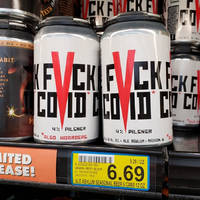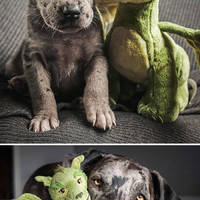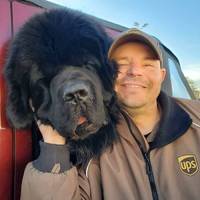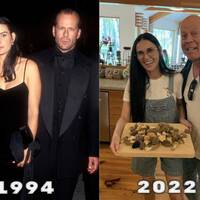6.

Harman 2 year s ago
We celebrate Halloween because it's the one holiday without obligations (family dinners, travel, gifts, stress). Everyone including kids and adults can dress-up in costumes, over-indulge, and be weird without repercussions. Plus nobody cares if you don't want to participate - it's the best of both worlds!
7.

Trix 2 year s ago
It started out as an Autumn harvest festival, but that has become overshadowed by costumes and candy.
It is a good way to begin winding down the last two months of the year, which starts with Halloween and sharing treats with your neighbors (mostly); then the gathering of family and friends for the Thanksgiving feast; then onto Christmas and giving to those less fortunate then ourselves, and finally topping it off by ringing in a new year of hope and prosperity. All-in-all a nice way to end the year.
Has it all been altered by over-commercialization and greed?
Only if you let it.
It is a good way to begin winding down the last two months of the year, which starts with Halloween and sharing treats with your neighbors (mostly); then the gathering of family and friends for the Thanksgiving feast; then onto Christmas and giving to those less fortunate then ourselves, and finally topping it off by ringing in a new year of hope and prosperity. All-in-all a nice way to end the year.
Has it all been altered by over-commercialization and greed?
Only if you let it.
8.

Ezra 2 year s ago
Trix,
Nope. Halloween has its origins in the ancient Celtic festival of Samhain, celebrated in what is now Ireland, the United Kingdom, and northern France.
The Celts believed that during Samhain, the spirits of the deceased returned to the world of the living. This belief led to various rituals and customs aimed at appeasing or warding off these spirits.
People would often wear costumes made of animal heads and skins during Samhain to disguise themselves from the spirits and avoid being recognized by the wandering souls. Offerings: Food and other offerings were left outside homes to appease the spirits and ensure good fortune for the coming year.
The church sought to incorporate existing local traditions into Christian festivals. In the 9th century, Pope Gregory IV moved All Saints' Day from May 13 to November 1, aligning it with the Celtic festival of Samhain. The evening before, October 31, became known as:
All Hallows' Eve, eventually evolving into Halloween.
Nope. Halloween has its origins in the ancient Celtic festival of Samhain, celebrated in what is now Ireland, the United Kingdom, and northern France.
The Celts believed that during Samhain, the spirits of the deceased returned to the world of the living. This belief led to various rituals and customs aimed at appeasing or warding off these spirits.
People would often wear costumes made of animal heads and skins during Samhain to disguise themselves from the spirits and avoid being recognized by the wandering souls. Offerings: Food and other offerings were left outside homes to appease the spirits and ensure good fortune for the coming year.
The church sought to incorporate existing local traditions into Christian festivals. In the 9th century, Pope Gregory IV moved All Saints' Day from May 13 to November 1, aligning it with the Celtic festival of Samhain. The evening before, October 31, became known as:
All Hallows' Eve, eventually evolving into Halloween.







Utter nonsens. The rest of the world would be celebrating Halloween too, when jealousy would exist. No one would be stopping them, isn't it?
Not enough people eat pumpkins, get the right kind and roast it like any other hard squash and it's delicious
to verify if you are actually as dumb as we think
It is a good way to begin winding down the last two months of the year, which starts with Halloween and sharing treats with your neighbors (mostly); then the gathering of family and friends for the Thanksgiving feast; then onto Christmas and giving to those less fortunate then ourselves, and finally topping it off by ringing in a new year of hope and prosperity. All-in-all a nice way to end the year.
Has it all been altered by over-commercialization and greed?
Only if you let it.
Nope. Halloween has its origins in the ancient Celtic festival of Samhain, celebrated in what is now Ireland, the United Kingdom, and northern France.
The Celts believed that during Samhain, the spirits of the deceased returned to the world of the living. This belief led to various rituals and customs aimed at appeasing or warding off these spirits.
People would often wear costumes made of animal heads and skins during Samhain to disguise themselves from the spirits and avoid being recognized by the wandering souls. Offerings: Food and other offerings were left outside homes to appease the spirits and ensure good fortune for the coming year.
The church sought to incorporate existing local traditions into Christian festivals. In the 9th century, Pope Gregory IV moved All Saints' Day from May 13 to November 1, aligning it with the Celtic festival of Samhain. The evening before, October 31, became known as:
All Hallows' Eve, eventually evolving into Halloween.